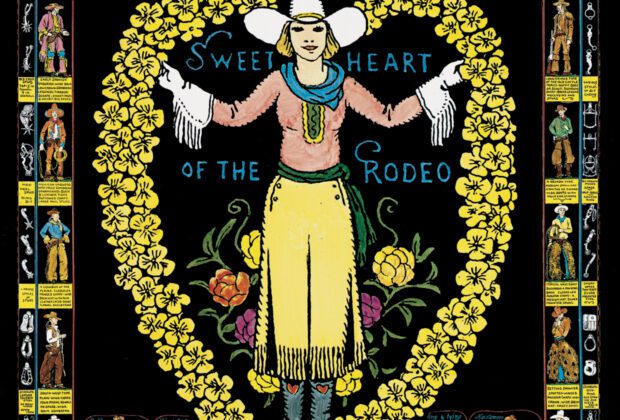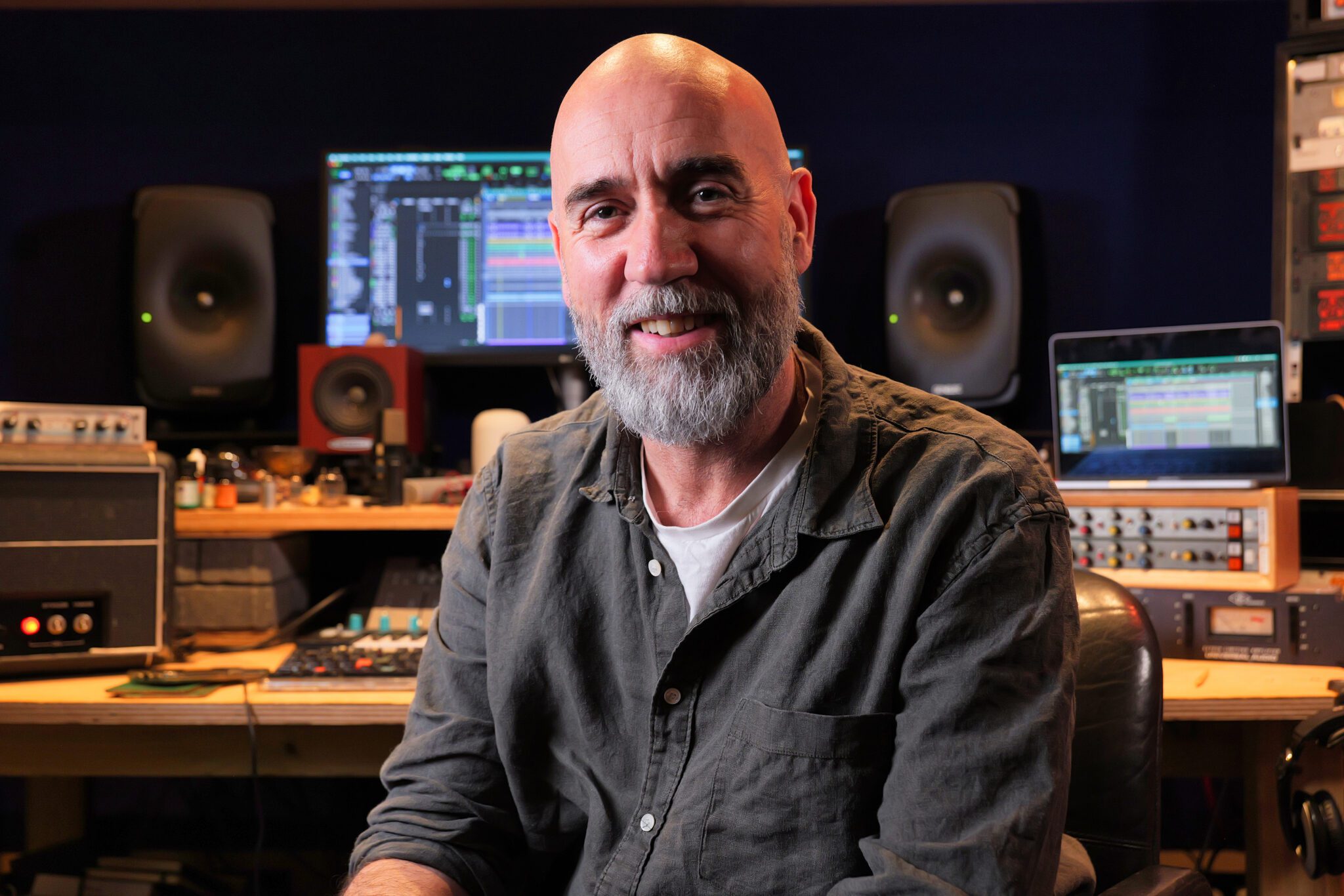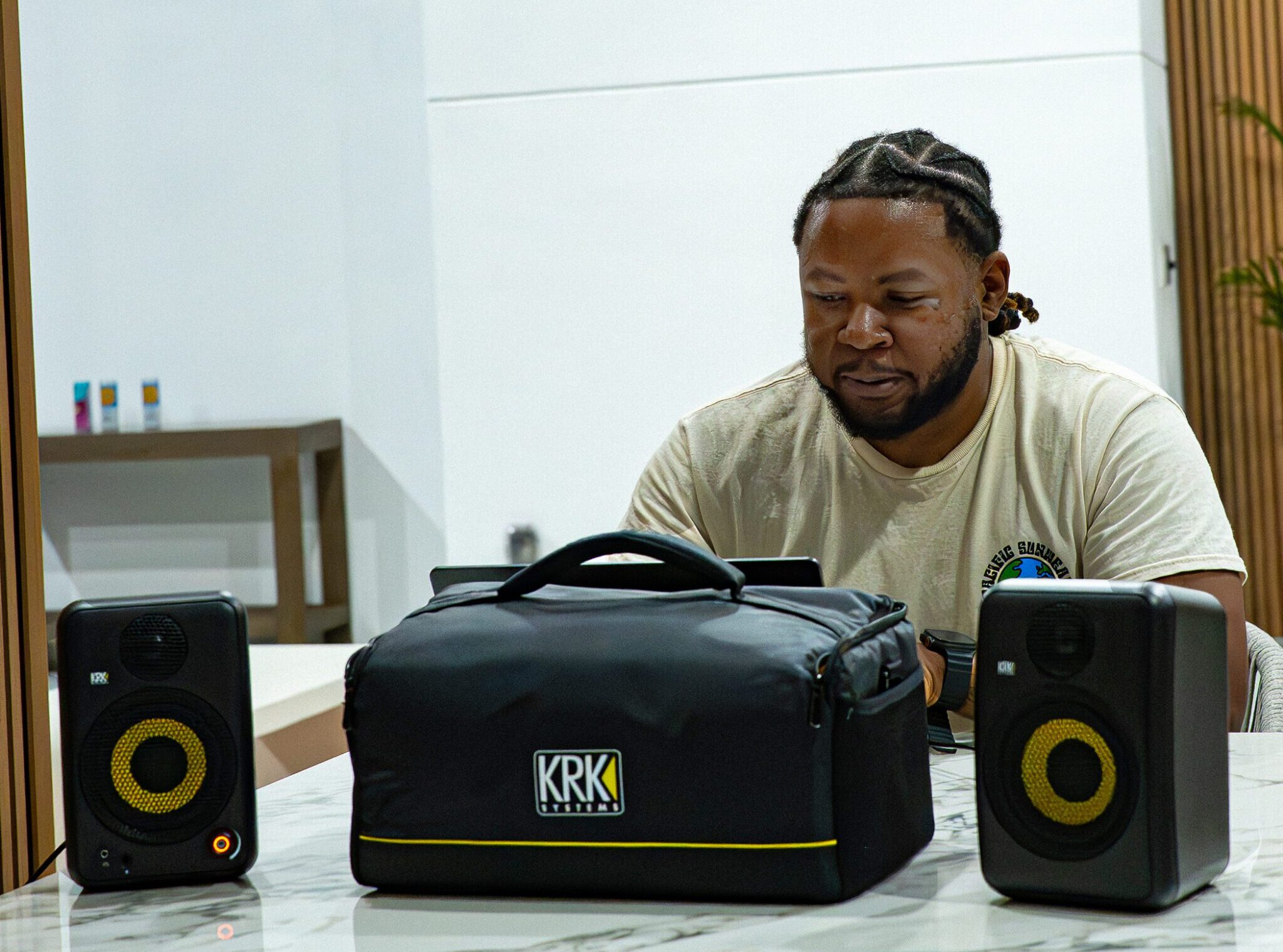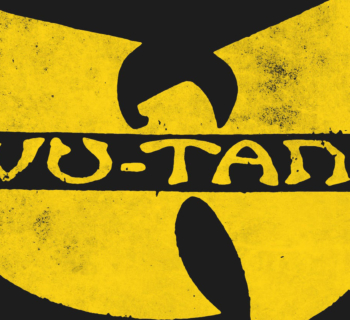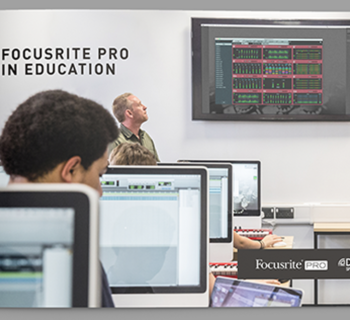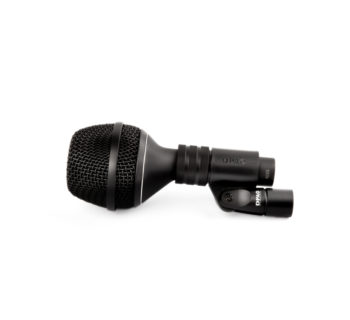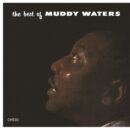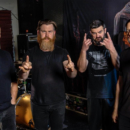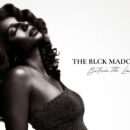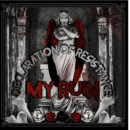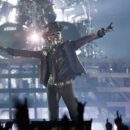In the summer of 2005 Sony Entertainment/Columbia/Legacy record label issued an expanded Byrds’ Sweetheart Of The Rodeo, the 1968 released album that now contains six non-LP tracks with Gram Parsons, six selections by the International Submarine Band he was in, and 14 previously unreleased rehearsal and alternate versions.
Initially, the Byrds circa 1968, Roger McGuinn, Gram Parsons, Chris Hillman and Kevin Kelley went to Nashville, TN. to record a Country-flavored long player that was completed in Hollywood helping solidify the already existing country-rock music genre.
The influence the Byrds and the disc had on the music world and many record collections in vinyl, CD format and digital streaming in addition have created and fueled some of today’s alt rock, Americana and country music-inspired bands.
In 2005 I interviewed Roger McGuinn about Sweetheart of the Rodeo. In 2014 I spoke with Chris Hillman about their influential landmark endeavor.
Q: Roger, before Sweetheart Of The Rodeo album began, you were planning, or toying with a sprawling double LP concept collection of roots, bluegrass, folk, country, experimental, Appalachian, Elizabethan, and space age music, that you suggested to the band.
A: It was a very ambitious idea, it was actually bigger than Americana it was world music, it was going to be the origins and the history of music if you will from the beginning: Dawn of man up to the present day, incorporating Elizabethan music and how that came over to the Appalachians and got distilled and became folk music and country music and rock ‘n’ roll and the African blend. It was to cover everything, including Jazz, and finally go off into space music and synthesizers and go off the top and just into the future.
But I couldn’t get anybody to go along with me and got outvoted. I really thought that would be fun. ‘Cause I was interested in all those types and all those forms of music. I thought it would be a nice thing to put in one package and have it all there. It would have been interesting, but in retrospect all the albums the Byrds made you’ve kind of got that. Sci-fi, early stuff, “Renaissance Fair”
Q: But you went along with the eventual record you made.
A: I really loved Sweetheart Of The Rodeo. I wasn’t upset about it. It wasn’t a band meeting and there wasn’t a vote taken it was simply that I couldn’t get anyone else to go along with me on this bigger idea.
Q: And, contrary to some reports, there seemed to be unity and cohesion in the band on the project, and not big power struggles about musical direction in this version of the Byrds.
A: It was perfectly fun. It was just really fun until the end and then it just fell apart.
Q: Chris Hillman met Gram Parsons in a bank and when Chris invited Gram over to your rehearsal, on Robertson or Melrose, a little office space you rented. I know initially you might have thought piano player Gram was McCoy Tyner, not a Hank Williams character after he started to harmonize at a rehearsal with you and Chris. And, even when the Byrds gigged with Gram in the outfit, shows at the Whisky A Go Go, Gram would play piano when the group played “Eight Miles High.”
A: We were rehearsing and Gram came in, and there was a keyboard of some kind and I asked Gram if he could play any ‘McCoy Tyner’ because I wanted to continue in the vein of ‘Eight Miles High’ jazz fusion with a (John) Coltrane kind of thing. And he sat down and played a little ‘Floyd Cramer’ style piano and I thought ‘this guy’s got talent. We can work with him.’
That was my original thought. Not knowing that he had another agenda, and that Chris and he were like kinda in cahoots and going to sway the whole thing into country music. But I really liked country music having come up in folk I always considered country music, especially the Hank Williams and the traditional country music that Gram was into a part of folk music, so it wasn’t alien to me.
Q: And you were impressed when you saw and heard Gram and Chris harmonize on Buck Owens’ “Under Your Spell Again.”
A: Exactly, and I started harmonizing with Gram, and he and I had a good blend. I was getting into it. It was fun. He and I had a lot of fun for a long time up until he left. I didn’t have any relationship to the International Submarine Band and knew nothing about them or the record.
Q: I always heard that just before you met Gram, let alone started the Sweetheart album, that you and Chris had just re-signed for seven years re-defining the original deal with Columbia Records, and re-worked your Byrds personal agreement deal, that the band was you two guys, and no more partners or equal share members. You weren’t sitting around waiting for three new and equal members to fill out the Byrds’ lineup. Just a rhythm section or sideman.
A: Absolutely. Chris and I made a pact that we would never have any more partners and that he and I would be the only partners. And that everyone else would be workman for hire. That was our understanding.
Q: As teenagers in Los Angeles, when Sweetheart Of The Rodeo was released, we were confused by the country music direction. I remember GO! magazine reporter Rodney Bingenheimer and I talking at a local Hollywood record shop, a bit unhappy, not bummed out, by the KLAC (Los Angeles country music) AM station sound of the album, not KMET (progressive FM rock station) at the time.
A: As far as radio airplay locally, we went to KLAC to visit and I was encouraged. ‘Oh cool.’ I first saw our album cover tacked up to the bulletin board in the lobby and I went up to it closer and there was a sign that said. ‘Do not play this. This is not country music.’ That was cruel…It was a shock. I was hurt. It was like they were boycotting it because it was a bunch of hippies trying to infiltrate their scene.
Q: When Sweetheart was first issued, it sounded like a record that DJ Tennessee Ernie Ford would have spun in the late fifties on Southern California country radio station KMPC-AM. Many Byrds loyalists missed the jangle of your Rickenbacker guitar, not appreciating the wholesome beauty of a Martin D-45.
A: Some people were heartbroken. There wasn’t a sense of despair, some were disappointed because they didn’t hear the Rickenbacker but those people didn’t show up to the gigs. The people we got were into it and they were liking it. There was a fan base that was gonna go along with us no mater what we did.
Well, you know, it’s satisfying, and what we did is that we went against the commercial grain and we upset a lot of people. The rock people thought we’d sold out to the conservative element. Country music was synonymous with right wing politics and rock was synonymous with left wing politics, and so I think we alienated both sides (laughs). But the people making this music were all buddies and kids hanging out, having fun. Playing music.
Q: What about the dealings with the record label at the time? I know you visited some radio stations to plug product.
A: We didn’t have any resistance from the record company when we did Sweetheart. The radio station visits were in the old business model. I don’t think we were very welcome to bring Sweetheart to radio stations. ‘Cause DJ’s like B. Mitchell Reed at KMET-FM in Los Angeles who we knew couldn’t play Sweetheart on their shows. They had radio restrictions, even if it was their own personal taste they weren’t going to play it. And we included a radio spot on the new re-release.
I remember meeting Peter Buck later saying, “Well its country, but its good country!” There were people who liked the album right off, and some people were put off by it but they liked it later. After, how long has it been now? It takes faith and perseverance. I’m a happy guy. It’s only recently over the last decade that I realized the impact this record has had on people, especially after meeting Jeff Tweedy and Jay Farrar.
What is amazing to me is the whole sub culture that formed out of the basically Sweetheart Of The Rodeo. Therewas nothing like it before and they took it and ran with it, they improved on it and embellished it and it finally came out into another area where it’s sorta new rock.
Q: I think guitarist Clarence White, who played on Sweetheart is an overlooked hero in the birth and development of country rock. He did a bluegrass touch coupled with a rock ‘n’ roll beat on “Time Between Us” from your 1966 Younger Than Yesterday LP. He also played on your earlier The Notorious Byrd Brothers LP.
And, going back to 1965 folkish/country Byrds’ offerings of “Oh! Susannah” and “Satisfied Mind,” a Porter Wagoner song, and the beat and country feel of your own playing and song structure of “Mr. Spaceman.” So you didn’t need to be introduced, let alone steered to country music by a new comer waltzing into town.
A: I agree with you. I was a fan of country music and we were dabbling in country rock before Gram came in. And even ‘Mr. Spaceman’ has a country beat to it. I mean, it’s a silly sci-fi song but it’s got a country, Buck Owens approach kind of song. We were dabbling in that and something we did for fun, and the only difference when Gram came along is that we decided to do an entire album of it and do nothing but that so. That was the difference. And I think it was because Chris had an ally. That’s what he feels. He found an ally in Gram. And the two of them kind swang it over to that at the time.
Absolutely. There was unity. We used to play poker everyday. I mean we were buddies who would sit around, drink beer and play poker. And when we were off in L.A., we’d ride motorcycles together. I mean, we were having a good time. It wasn’t like there was this weird animosity. There was very little of that going on. It was a friendly band. Maybe too much fun. We enjoyed it. ‘Lazy Days’ is a cool song Gram wrote. They’re all good songs and we have to give Gram credit for bringing a lot of them to the sessions. Gram brought in a batch of songs. “Hickory Wind,” William Bell’s “You Don’t Miss Your Water,” and The Louvin Brothers’ “The Christian Life.” Also “Reputation” is in the new version, a Tim Hardin song.
Q: What about the impact of the record over the years? How do you view the album now? Would you change anything now?
A: All I can tell you is that it has taken on a life of its own. It’s far exceeded my expectations for it. At the time we were just having fun and we wanted to do it.
In Nashville when we recorded, we had party tools…It’s probably the hottest album the Byrds ever did and it’s ironic to me. It made the difference by doing it in Nashville and the authenticity it would not have had if it would have been done the whole thing in L.A.
Q: In the liner notes to the new edition of Sweetheart you mention that “We did Sweetheart Of The Rodeo with a lot of heart and integrity. We were trying to make country music, as purely as we could. But we were so young-and we were a rock band.”
A: We all got along great with the musicians in Nashville and stayed at this Ramada Inn and played poker all day until the sessions at night and had a ball. We were country boys. We got into it. I mean, we had cowboy hats and boots.I loved it. A very enjoyable experience. We were just role- playing.
Even Gram.He wasn’t that kind of kid. He was a folkie, he was a preppie, basically, Gram was, and he got turned on Elvis when he was 10 years old, and that changed his life and he wanted to be a rock star, which he eventually became, and then he got into country, he got into Buck Owens and he got into Waylon and Willie. I think what he really wanted to do was get rid of me and get a steel guitar player.
Q: Dude, how do you deal with a rich kid?
A: You can’t. But we didn’t know that and I had no idea he was rich.
Q: It seemed the game plan was to toss you out the door and replace you with pedal steel player Sneaky Pete Kleinow.
A: Yea. Yea. [laughs]. Let’s form the Burrito Brothers and call it the Byrds basically. I didn’t want that to happen. I had put too much into the Byrds.
Q: Do you remember your two-song set on the live-radio Grand Ole Opry broadcast from the Ryman Auditorium, a booking Columbia secured just after you finished the Nashville recording sessions. You had Lloyd Green added on pedal steel and your drummer Kevin had a real small kit. You were scheduled to do another Haggard song, “Life In Prison,” which was on Sweetheart, but Gram inserted another Sweetheart recording, his “Hickory Wind,” and dedicated it to his grandmother.
A: I remember it. It was a funny night in retrospective. We were a little nervous. Because we were out of our league. Our hair was pretty short. It was not shoulder length anymore and I think I had bangs, but if you saw me in that haircut today you would consider it fairly conservative haircut. There are pictures of our hair in the booklet.
So, we get there and there is this kind of cold shoulder feeling going on. We get up to do our songs. The audience is polite but not really into it. And then Gram hijacks the whole thing. We were supposed to do a Merle song and he took it over and wanted to sing a song for his grandma because he knew she would be listening. It was a surprise.
Anyway, so that’s what happened and they all got mad at us at the Grand Ole Opry for straying from the set list that we agreed on because I guess it was radio and they have rigid times, publishing details and licensing issues and all that stuff to deal with and we didn’t care much about it. I thought it was funny Gram did that. I wasn’t upset at all. We weren’t booed but we didn’t get a rousing round of applause. Skeeter Davis was friendly and supportive and told us we were great and not to listen to these people.
Even in Nashville when we visited country music DJ Ralph Emery with the album at WSM where Ralph was a DJ, he had an all-night show and mostly truckers were his audience, and cued it on a little turntable for a couple of seconds and said ‘I’m not gonna play this.’ I mentioned a couple of Dylan tracks included, check it out, he blasted us over the airwaves, called us hippies and said something like ‘if Dylan wore green socks everyone else would.’
Q: The link of Byrds covering Dylan continued with Sweetheart. Two songs, Nothing Was Delivered” and “You Ain’t Goin’ Nowhere” were cut, although you sang the original lines “pick up your money and pack up your tent” as “pack up your money, pick up your tent.” Then, later in 1971, Dylan on his own Bob Dylan Greatest Hits, Volume II expanded the same song, adding, “Pack up your money, pull up your tent, McGuinn.”
A: Yes. Chris got the demos of the two Dylan songs in the mail that we did. Dylan as a songwriter was so much better than everyone. We had been out of touch for a few years and it was interesting to notice that at this same period he was going in the same musical direction we were in. Earlier when I recorded the vocal on ‘Mr. Tambourine Man” I was trying to place it between Dylan and John Lennon.
Q: How do you now view Sweetheart Of The Rodeo?
A: What we did was very country. If you listen to country today it was certainly more country than anything that’s on country radio. Like country radio to me is like rock ‘n’ roll. (laughs). I’m very happy with the new expanded version. I’m involved with my own catalogue reissues and the effort Sony/Legacy has put into it. They’ve always done a good job with these things and it’s amazing to me they can find the tracks and the things. I think the quality has improved and sounds better than the original recording. I don’t think it takes away from the original pressing with the bonus tracks, working demos, outtakes. People who are purists can go back and find the original vinyl and play it.
Q Gary Usher who produced the Sweetheart album. You had a relationship with Younger Than Yesterday who was involved earlier in some surf music and beach soundtrack albums and he came out of surf music, and collaborating with Brian Wilson.
A: There were only a few producers around at that time.Like Phil Spector and the Brill Building people on the West Coast, along with the Beach Boys and The Wrecking Crew. Gary was amazing when he was doing this. He was a ‘tech head’ for the time. Very innovative. We had done this phase-shifting he had done with two tape machines. And he took that idea, which was moving the machines closer together, after recording them spread out, and then one would phase shift, and move them and make a 16 track out of an 2 right tracks. I was loving it. He was great. Gary and I were kindred spirits and very creative. Gary was the shining light in that whole thing.”
Harvey Kubernik 2014 Interview with Chris Hillman
Q: During Sweetheart of the Rodeo the Byrds covered two Dylan tunes.
A: I have no idea why I got in the mail the two Bob Dylan Basement Tapes songs in my mail. I sensed something was good there and I took them to McGuinn. And I wasn’t ready to sing those songs. I was not a good singer and the songs I sang on ‘Sweetheart’ are mediocre at best. I wasn’t a good singer yet. I admit it. And it’s not going to haunt me to the grave. Because I learned how to sing. I loved the first Band album.
[On] Sweetheart of the Rodeo Gram brought two great sings to the mix: ‘100 Years From Now’ and ‘Hickory Wind.’ Really two of his greatest songs.
Q: Producer Gary Usher.
A: Gary Usher was an incredibly gifted producer to work with. Especially at the very end, and it was just McGuinn and I trying to finish Notorious Byrds Brothers. And Gary worked with us as another band member. Good ideas. Gary Usher brought us the Goffin and King ‘Goin’ Back.’ I don’t have a problem with that record.That was Gary bringing in a song that fit us like a glove. It was perfect and its Roger and I singing lead. It’s a little too pretty but it’s OK.
The Byrds on Turn! Turn! Turn! album on ‘Satisfied Mind,’ which really was a Porter Wagner hit, and I think we had heard Hamilton Camp do it, but it’s such a great song. And then, I still think ‘Time Between’ was our country rock song of the time. That’s when we started doing that stuff. When we had Clarence White come in and play on Younger Than Yesterday. I’m not taking credit for any of that. Rick Nelson deserves credit in the country rock thing, too. Big credit. Way beyond anybody else. But you know how this business works.
Q: Your 1967-1969 world…
A: I’ve always felt 1969 was the turning point when it got edgy. Meaning it got a little dark. The 1967 Monterey International Pop Festival was fabulous, the greatest rock festival ever. I’m sorry.Not Woodstock. Not the Isle of Wight. It was Monterey.
At the 1967 Monterey International Pop Festival I saw Paul Butterfield at we had worked with Paul the one time when the Byrds really came to the plate. Which was when we did a week at The Trip with Butterfield’s original band and they were so good.
I got to know him a little bit. I remember doing the Palm Springs Pop festival with Paul in 1969 in Palm Springs, with the Burrito Brothers. I remember walking with Paul Butterfield to the promoter’s tent, and Paul got his brief case with a 38 Colt piece in it, and I said to myself, ‘this guy really did work on the south side of Chicago.’ Oh…Here we are in the peace and love bull shit and here he’s got his 38 loaded to go and collect his money!’ This guy is real. A real blues guy!
In August 1969 I was living in the San Fernando Valley in a house with Gram Parsons. And the news came on about Woodstock. I said to Gram, ‘That’s no Monterey!’ And it wasn’t. We were almost chuckling. I’m not denigrating it or putting it down. Monterey was the best.

